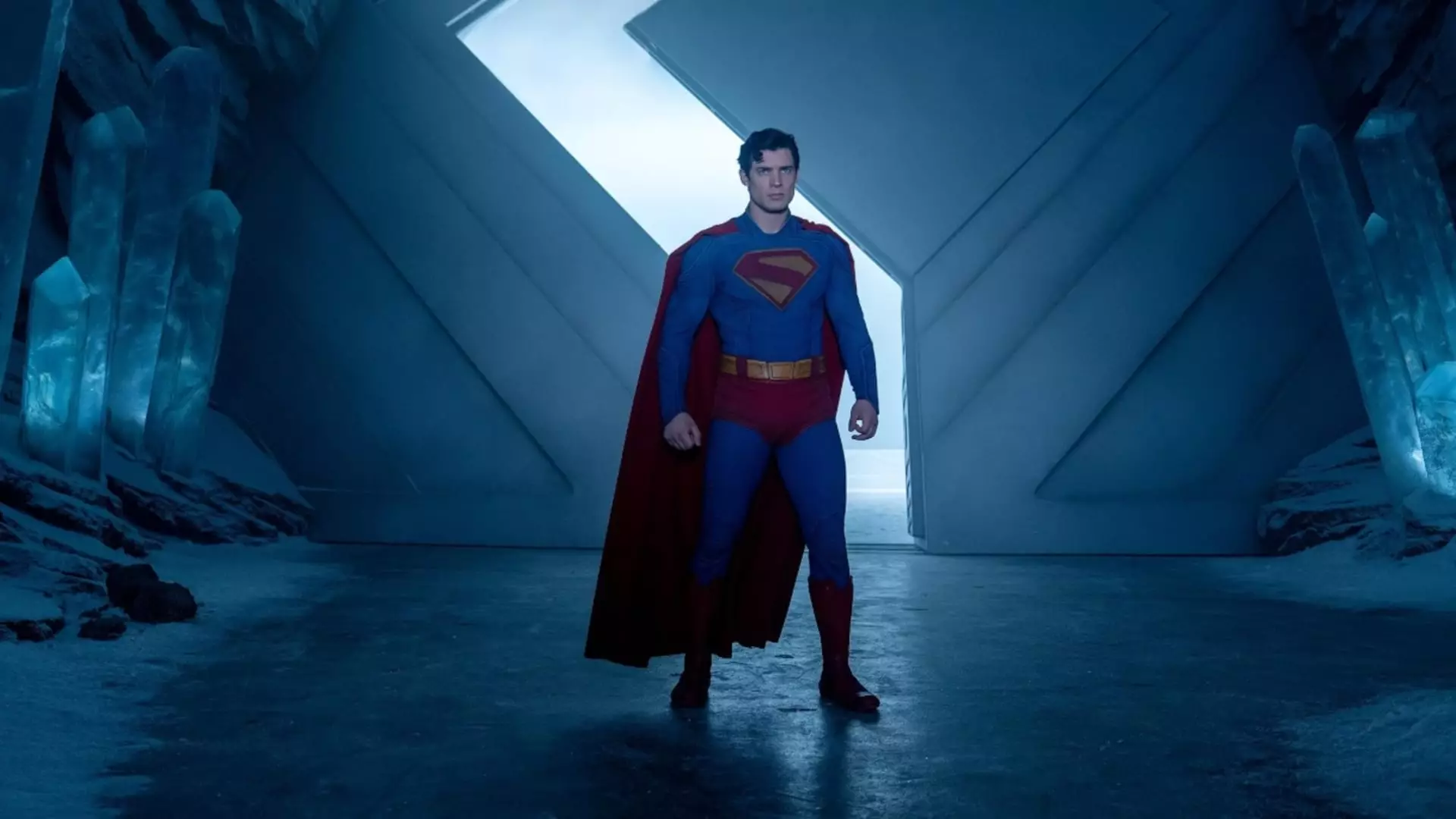In a Hollywood landscape increasingly saturated with superhero movies, Warner Bros. and DC Comics are attempting a daring comeback with their latest Superman film. This reboot, helmed by James Gunn and Peter Safran, aims to restore faith in the franchise amid a series of missteps and lukewarm receptions over the past decade. The film’s striking preview performance—earning $22.5 million—signals potential, yet it also exposes the enormous pressure on Warner Bros. to deliver not just box office dollars but a renewed cultural relevance. The stakes are higher than ever for this iconic hero, whose once unchallengeable status now teeters on the brink of skepticism.
Despite the promising preview figures, skepticism deepens. Historically, superhero films have become cultural touchstones, yet recent entries have failed to sustain momentum beyond opening weekends. Warner Bros.’ gamble rests on more than just initial numbers; it’s about whether this new iteration will resonate deeply enough to justify future investment and shift public sentiment. The industry’s obsession with blockbuster dominance often distorts the deeper, more complex challenge of fostering meaningful character arcs and narratives that appeal to both nostalgic fans and newer audiences. While early indicators point toward a robust opening, the true test lies ahead: can this Superman reboot foster lasting engagement, or will it become just another fleeting Hollywood spectacle?
Expectations vs. Reality: The Tenuous Path to Sustained Success
The opening preview tally of $22.5 million makes “Superman” the third-highest Thursday debut for a DC film, yet it still trails behind titans like “The Dark Knight Rises” and “Batman v. Superman.” That disparity hints at lingering audience fatigue and the high demand for innovative storytelling in a crowded superhero marketplace. Warner Bros. faces a critical challenge: balancing the nostalgia that drives initial interest with the necessity of pushing boundaries to develop a genuinely compelling film. Commercial success without substantial storytelling risks perpetuating superficiality—something Superman movies have historically struggled with, often caught between myth and marketing.
Projected full-weekend revenue estimates vary between $130 million and $140 million, comparable but not overwhelming in comparison to the early successes of “The Batman” or historic DC box office giants. The real challenge is whether this movie can serve as a catalyst for a broader revival, spurring viewers to prioritize DC’s universe in an era dominated by Marvel’s cineplex hold. These numbers alone don’t guarantee longevity; they highlight the fragility of this reboot’s potential to carve out a lasting place in the culture. If it falters, it risks further weakening Warner Bros.’ confidence in its ability to launch hit franchises, leading to a perilous cycle of incremental underperformance and dwindling creative boldness.
The Political and Cultural Undercurrents of a New Superman
Beyond box office figures, the reboot carries significant cultural weight. Superman, often seen as a symbol of hope and moral clarity, now functions as a reflection of modern liberal ideals—justice, inclusivity, and social responsibility. By shaping a new narrative, Gunn and Safran are not merely updating a character but attempting to redefine what heroism means in today’s tumultuous world. This effort aligns with a broader cultural movement: embracing diversity, confronting complex social issues, and challenging traditional notions of hero worship. However, the risk is that such attempts might alienate core fans resistant to change or dilute the heroic ideal into something perceived as politically driven.
Critically, it’s imperative that the new Superman doesn’t fall into the trap of being overly ideological. Instead, it should strike a delicate balance—upholding ideals of morality while acknowledging the nuanced reality of contemporary society. The film’s current positive critical reception (83% on Rotten Tomatoes) suggests it has managed to navigate some of these waters. Yet, critical acclaim is superficial if it doesn’t translate into genuine fan trust and box office loyalty. Warner Bros. must be vigilant not to allow ideological posturing to overshadow storytelling integrity, lest the franchise become more about messaging than quality entertainment.
Future Prospects: A Fragile Window of Opportunity
The initial momentum, while promising, is not a guarantee of future success. Warner Bros.’ recent history teaches harsh lessons about the instability of superhero franchises that rely solely on spectacle. The true challenge lies ahead: maintaining viewer interest throughout the summer and beyond. If families and younger audiences turn out eagerly, the reboot could herald a new chapter for DC; if they don’t, it risks becoming yet another chapter in a fading legacy.
This moment represents an inflection point for Warner Bros. and the broader superhero genre. While the film’s early figures suggest a path forward, they also underscore how fragile that path is—dependent on word-of-mouth, sustained storytelling, and cultural relevance. Warner Bros.’ willingness to take creative risks—reimaging Superman’s archetype—could either redefine the hero for a new generation or prove to be a misstep if the narrative lacks depth or universality. The next few months will reveal whether they can build on this opening success to forge a lasting, transformative impact on the superhero genre and the cultural psyche at large.


Leave a Reply